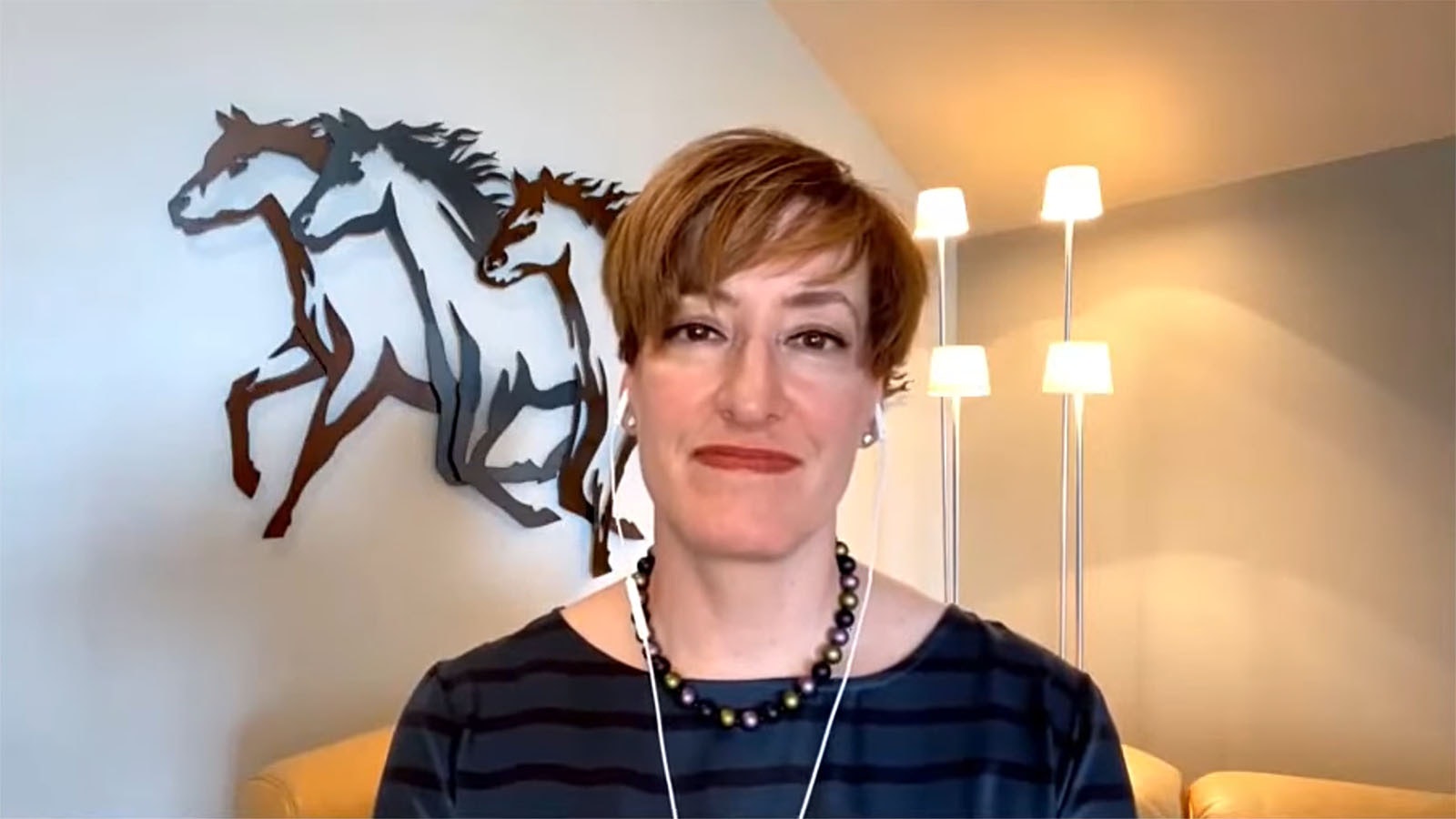A nationally respected banking industry magazine has highlighted 20 innovators nationwide, and Wyoming’s Caitlin Long is on the list.
Long was instrumental in helping write 13 of Wyoming’s blockchain enabling laws, and is also CEO of Custodia Bank, formulated as a regulatory-compliant bank under Wyoming’s Special Purpose Depository Institution law.
Long had envisioned her digital bank offering an on-off ramp for cryptocurrencies for law-abiding digital asset the companies.
Wyoming’s law requires SPDIs to be 100% reserved, meaning they cannot use their deposits for financial operations of their own. It also included strict “know your customer” rules aimed at preventing money laundering and support of terrorists.
Long had aimed to open her bank in early 2021, and as recent as 2020, SEC Commissioner Hester Peirce was touting Wyoming’s law as a potential model for the rest of the nation.
But the intervening two years has brought a sea of change in policies, which culminated in an 86-page manifesto from the federal Securities and Exchange Commission rejecting not just Custodia Bank’s application for a master account, by Wyoming’s overall charter for SPDIs, despite the fact it was written with federal guidance from the Kansas City Fed.
Long Has Wyoming Roots
Long is a Harvard Law School graduate and a 22-year veteran of Wall Street, but grew up in Laramie and attended University of Wyoming before leaving the state in 1994 to pursue her law degree.
She’s worked for Salomon Brothers, Credit Suisse and Morgan Stanley before diving headfirst into the cryptocurrency sphere with financial technology startup Symbiont.
Her footsteps turned toward Wyoming after she tried endowing a scholarship for female engineers at University of Wyoming using bitcoin. When she discovered Wyoming law wouldn’t allow it, she was determined to change that.
At the time, she was working on a Delaware bill that allowed stock shares to be issued on a blockchain, so she was already actively engaged as an advocate for digital asset friendly laws.
Long helped found the Wyoming Blockchain Coalition with friend Rob Jennings and Cheyenne accountant David Pope. The coalition was instrumental in convincing former state Rep. Tyler Lindholm to introduce a suite of bills aimed at creating a safe regulatory space for innovating digital assets and the financial sector in the Cowboy State.
Long has told Cowboy State Daily the opportunity with cryptocurrency is similar to that South Dakota gained 40-some years ago when it created a regulatory space for credit card companies. South Dakota still has more than 40,000 jobs in that sector and serves as headquarters for about half of U.S. credit card companies.
Tug Of War Was Unexpected
Long never expected to find herself in a tug-of-war with regulators, she told American Banker in its nomination story about her.
“We actually viewed our business plan, as proposed to the Fed, as very friendly to the traditional banks,” she said. “We were going to be a new breed of bankers’ bank that was going to bring technology to the traditional banking world, especially to those banks that don’t have technologists on staff to be able to build it.”
Long remains a staunch advocate of financial innovation and the digital asset sector, despite what’s happened with Custodia Bank, and for bringing cryptocurrency into the regulatory perimeter. She hopes the latter will force out grifters and fraudsters.
With cryptocurrency being a trillion-dollar industry, Long doesn’t believe U.S. regulators will be able stop innovation in the digital finance sector, though they could push it overseas, further outside of the United States’ regulatory reach.
Long’s court battle with the Federal Reserve over its handling of Custodia Bank’s master account application continues and is likely to be precedent-setting for Wyoming SPDIs. The case has so far survived two motions to dismiss from the Federal Reserve, and now faces a third.
Wyoming, meanwhile, has recently joined Custodia Bank’s suit to defend its SPDI charter. In its latest motion, it argues against the Federal Reserve’s third motion to dismiss, saying that the Federal Reserve itself “created the issue that the state now challenges, by specifically referencing and denigrating Wyoming’s legal framework and ability to create a legal framework for new and innovative banks that protect consumers.”





